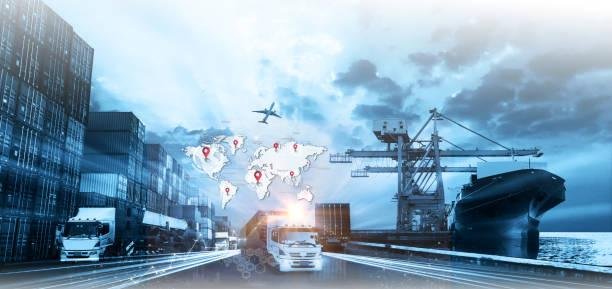-
Noticias Feed
- EXPLORE
-
Blogs
Shipping from Store? Here’s Why You Also Need a Returns Management Strategy

In today’s rapidly evolving retail landscape, the ability to ship products from store has become a powerful advantage. Retailers use this model to improve delivery times, reduce shipping costs, and maximize inventory across their store networks. But there’s one critical piece often overlooked in the rush to implement store-based fulfillment: returns management.
Shipping from store can drive sales and customer satisfaction, but it also adds complexity to the reverse logistics process. Without a solid returns management strategy, your business risks losing the very gains it hoped to achieve. Here’s why integrating a Returns Management Platform and Reverse Logistics Platform is essential to long-term success.
The Rise of Shipping from Store
More retailers are enabling their brick-and-mortar locations to serve as mini-distribution centers. This “ship from store” approach is especially valuable for meeting same-day or next-day delivery promises. It also helps retailers sell more full-price items by leveraging local store inventory and avoiding out-of-stock situations online.
However, this distributed order fulfillment model introduces logistical challenges, particularly around returns. Customers now expect seamless return options — and retailers must provide them without disrupting operations or losing profitability.
The Hidden Cost of Returns
E-commerce return rates are notoriously high, often ranging from 20% to 30%. With shipping from store, returns become even more fragmented and costly if not properly managed. Products may need to return to a central warehouse, go back to a local store, or be processed through a third-party logistics partner.
A disorganized or manual return process leads to:
- Slower restocking of returned items
- Higher shipping and handling costs
- Increased risk of fraud or damage
- Reduced customer satisfaction
That’s where a Returns Management Platform comes in — to automate, track, and optimize every return, no matter where the original shipment originated.
What Is a Returns Management Platform?
A Returns Management Platform is a centralized solution that enables retailers to handle returns efficiently across all channels. It provides the tools needed to:
- Authorize returns automatically
- Provide customers with easy return options
- Generate prepaid return labels
- Track the status of returns in real-time
- Automate restocking and refund workflows
When integrated with a Reverse Logistics Platform, the entire process — from initiating the return to getting the item back in inventory — becomes faster and more cost-effective.
Benefits of Integrating Reverse Logistics with Store Fulfillment
- Improved Inventory Visibility
A robust reverse logistics system tracks returned items from the point of return to final disposition, providing real-time updates to inventory systems. - Faster Resale Cycles
Quickly moving returned products back to store shelves or online inventory helps recover value and reduce markdowns. - Reduced Environmental Impact
Smart routing of returns to the nearest store or warehouse minimizes unnecessary shipping and waste. - Enhanced Customer Experience
Offering convenient return options and faster refunds builds trust and boosts brand loyalty. - Operational Efficiency
Automating reverse logistics processes reduces manual effort and errors, freeing up staff to focus on high-value tasks.
Why Retailers Can’t Afford to Ignore Returns
Retailers focused solely on the outbound process — how to ship products from store efficiently — are only solving half the equation. Returns are an inevitable part of modern commerce. Ignoring them or treating them as an afterthought can erode profits and damage customer relationships.
A strong Returns Management Platform, paired with a smart Reverse Logistics Platform, turns this challenge into a competitive advantage. It transforms returns from a cost center into a strategic lever that enhances efficiency, sustainability, and customer satisfaction.
As more businesses embrace store-based fulfillment, building a robust returns management strategy is no longer optional — it’s essential. Investing in a powerful Returns Management Platform and Reverse Logistics Platform ensures that your ability to ship products from store is matched by your capacity to handle returns smoothly. Together, these systems close the loop on your logistics operations and position your brand for long-term success in an omnichannel world.
For Original Post View: https://gracebook.app/blogs/41934/Shipping-from-Store-Here-s-Why-You-Also-Need-a






